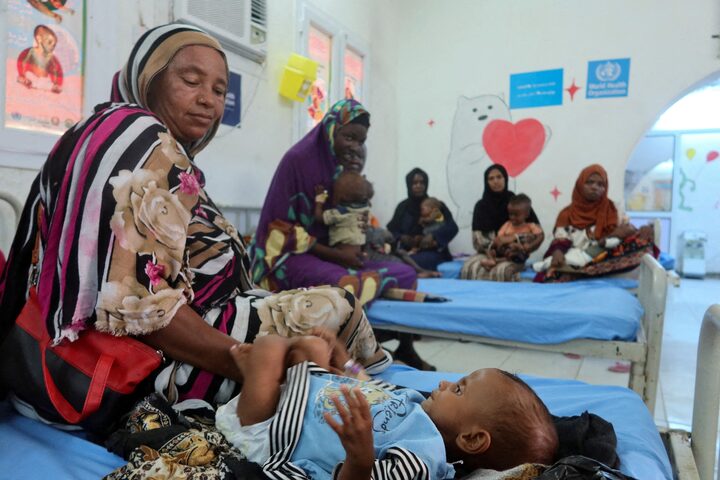
- The UN says that since the beginning of the conflict, at least 13 million Sudanese have been forced to leave their homes, and half of the population suffers from food shortages. The Rapid Support Force (RSF) has attacked the Darfur region over the weekend, killing at least 350 people and injuring hundreds, according to the region’s Minister of Health.

The war began in Sudan in April 2023 after fighting broke out between the Sudanese army and the paramilitary group RSF Rapid Support Force. Since then, the country has been immersed in extreme violence that has become a daily bread. According to the United Nations, Sudan is experiencing the most “serious” humanitarian crisis in the world: according to data published by the same organization, almost half of the population – 26 million people – suffer from food shortages and since the outbreak of the conflict at least 13 million people have been forced to leave their homes.
The fighting broke out between the two groups as the Sudan transitioned to democracy:In 2019, the dictator Omar Al-Baxir was overthrown by the military after 30 years as president. That year, the Sovereign Transitional Council was established with the aim of forming a civil-led democratic government. Due to disagreements between civilian and military leaders, the military launched a coup d’état in October 2021.
The de facto President of the Sovereign Transitional Council is General Abdel Fattah Al-Burhan, a supporter of the army. His deputy is General Mohamed Hamdan Dagalo Hemedti, head of the RSF paramilitary group that was formed by former President Al-Baxir. Indeed, the division between the two sides was prompted by discussions about the place of the group headed by General Dagalo Hemedti in the Sudanese army, followed by fighting between the two.
The blood continues to flow
The capital Khartum was the center of the struggle in the early moments of the war, but violence quickly spread throughout the country. Currently, Sudan is divided into two parts:north and east are controlled by the army, while parts of the south and a large area of the Darfur region are controlled by RSF. Indeed, the paramilitary group has attacked the areas of Zamzam and Abu Xuk in that region over the weekend, as well as the city of Al Faxer.
The Minister of Health of the Darfur region, Babaker Hamdin, reported at a press conference that at least 350 people had been killed and hundreds wounded in these attacks by militia supporters of General Dagalo Hemedti. Hamdin denounces that civilians living in the city of Al Faxer are living in "terrible circumstances" due to the siege caused by RSF for a year: "The humanitarian situation is deplorable and deficient, there is no food or medicine."